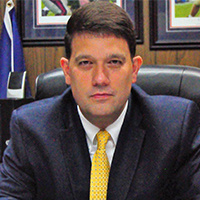University DUI-DWI Lawyer, Mississippi
Sponsored Law Firm
-
 x
x

Click For More Info:
-
Smith, Murphy & Dobbs, LLC
1109 Van Buren Ave Oxford, MS 38655» view mapAccident & Injury and Criminal Defense Smart, Efficient, Precise
Fair legal work for fair compensation. We are straight-forward in our communications with clients and return all emails and phone calls within twenty-four (24) hours.
800-894-6061
Tommy W. Defer
✓ VERIFIEDAccident & Injury, Divorce & Family Law, Criminal, Estate, DUI-DWI
The Law Office of Tommy W. Defer was established in December 2003, and is located in the City of Water Valley, Mississippi (just 20 miles South of Oxf... (more)
Christopher E Kittell
✓ VERIFIEDAccident & Injury, Personal Injury, Consumer Rights, Car Accident, DUI-DWI
Christopher E. Kittell is an experienced trial lawyer who practices law at the Kittell Law Firm in Hernando, Mississippi. He received his BBA in Comp... (more)
Edgar Clark Trout
Criminal, Car Accident, Personal Injury, Wrongful Death, DUI-DWI
Status: In Good Standing Licensed: 18 Years
Paul A Chiniche
Employment, Divorce & Family Law, Criminal, Business, DUI-DWI
Status: In Good Standing Licensed: 20 Years
Ronald W Lewis
Criminal, Divorce & Family Law, Employment, Lawsuit & Dispute, DUI-DWI
Status: In Good Standing Licensed: 46 Years
 Joseph Murphy Oxford, MS
Joseph Murphy Oxford, MS Practice AreasExpertise
Practice AreasExpertise


